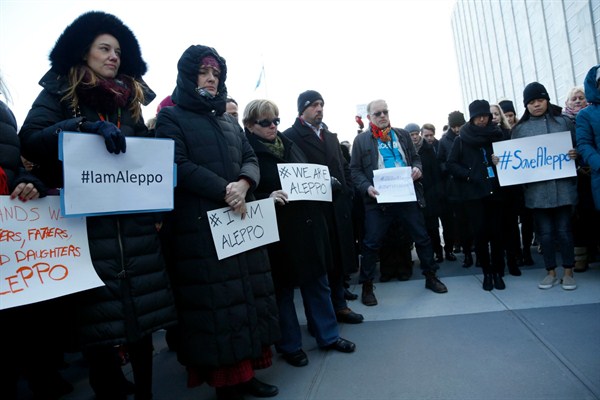Who remembers Aleppo? A year ago, the Syrian city appeared tragically central to international diplomacy. Russian and Syrian government forces were in the midst of a brutal final push to drive rebels from eastern Aleppo. This was the last major urban redoubt of opponents of President Bashar al-Assad. It was clear that the city’s looming collapse could be a definitive turning point in his battle to cling onto power.
Yet the fate of Aleppo seemed liable to have vastly wider effects. The city was a profound source of friction between the U.S. and Russia before and after the November 2016 elections. Diplomats at the United Nations speculated that the siege could culminate in a bloodbath similar to the Srebrenica massacre in Bosnia in 1995, which left the U.N.’s credibility in tatters. In late 2016, it was reasonable to believe that events in Aleppo could redefine the future of the international order.
This was not to be the case. Russia and its Syrian allies wrapped up the siege in December of last year, and Aleppo rapidly disappeared from the headlines. While fatality figures in such cases are always debatable, 3,500 civilians are reported to have been killed in the final six months of the battle. The U.S., Russia and the U.N. moved on to other issues with haste. It is worth asking why Aleppo has been forgotten so quickly.

